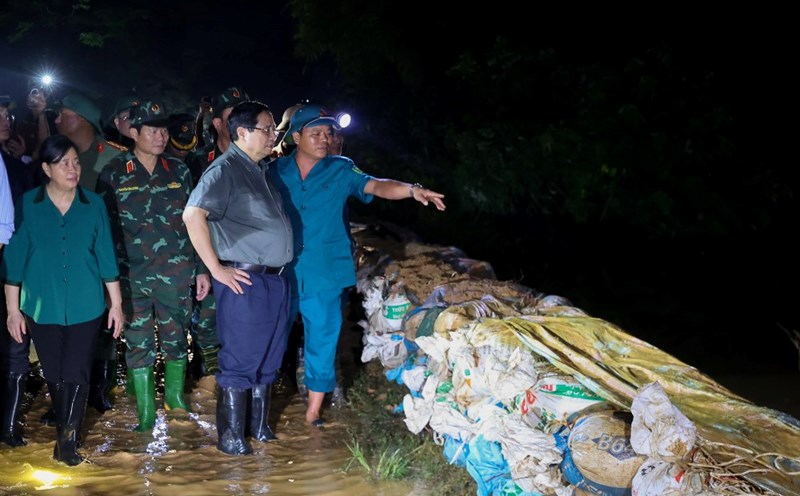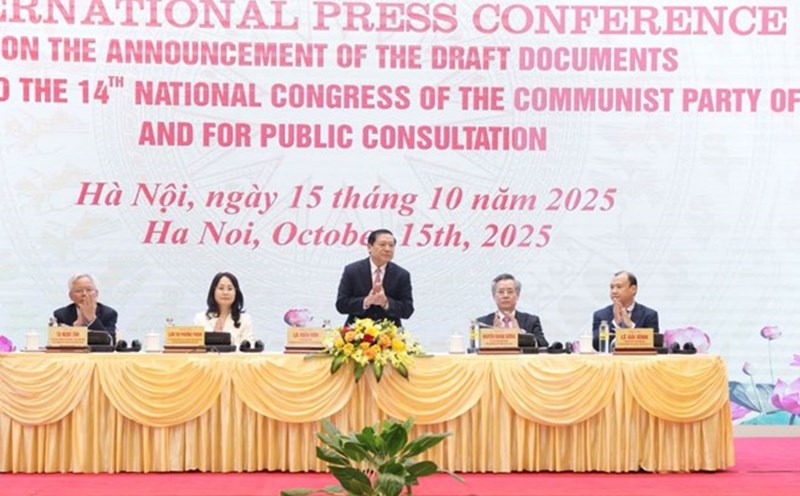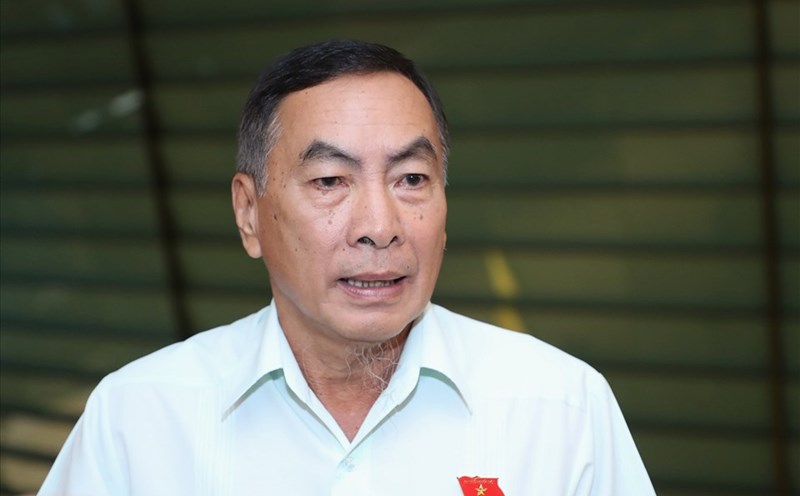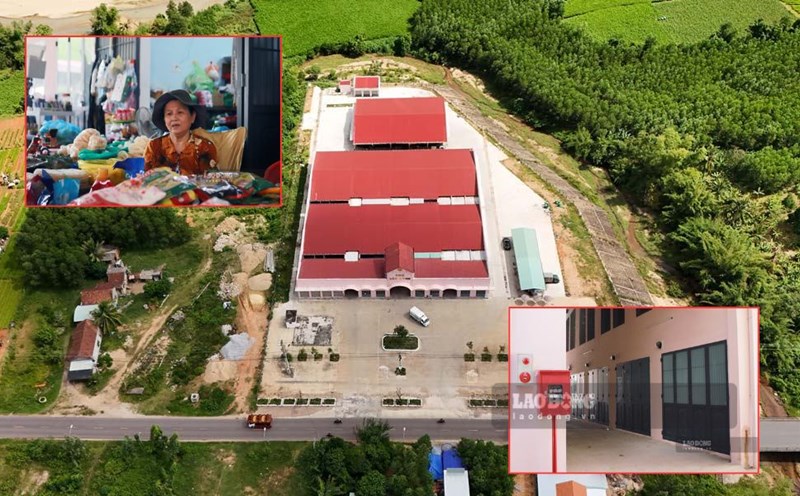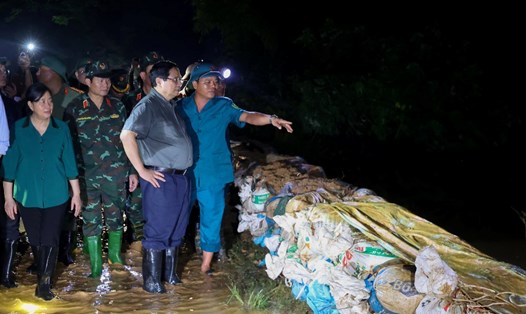On the morning of October 21, the National Assembly discussed in groups many issues, including assessing the results of the implementation of the 2025 socio-economic development plan; the expected socio-economic development plan for 2026; the implementation of the state budget in 2025; the implementation of the 2025 financial plan...
Speaking in the group, Politburo member and Permanent Deputy Prime Minister Nguyen Hoa Binh thanked the delegates for frankly pointing out issues such as flooding and pollution.
During the recent flood, the Permanent Deputy Prime Minister directly inspected with the leaders of Bac Ninh province and said that such a severe flood had not occurred in 70 years. The dyke system, after decades, has overcome the barrier.
In that situation, Permanent Deputy Prime Minister Nguyen Hoa Binh said that the Government determined that there should be adaptive solutions. The Government has proposed to the Politburo and is implementing programs to combat pollution and flooding.
In particular, the Southern region has a large-scale, methodical flood prevention program with a very significant investment capital. In the Northern region, in the near future, the Government will develop a comprehensive program to basically handle the issue of dykes, similar to what has been done in the South.
With comparative opinions on the experience of flood prevention in the Netherlands, the Permanent Deputy Prime Minister said that it is also necessary to recognize the reality of economic potential.
"Investing in a sea dike system like the Netherlands requires a lot of resources. We have sent delegations to learn from experience, but to implement synchronously, we need to consider financial capacity," said the Permanent Deputy Prime Minister and affirmed that the Government will have appropriate solutions to gradually implement.
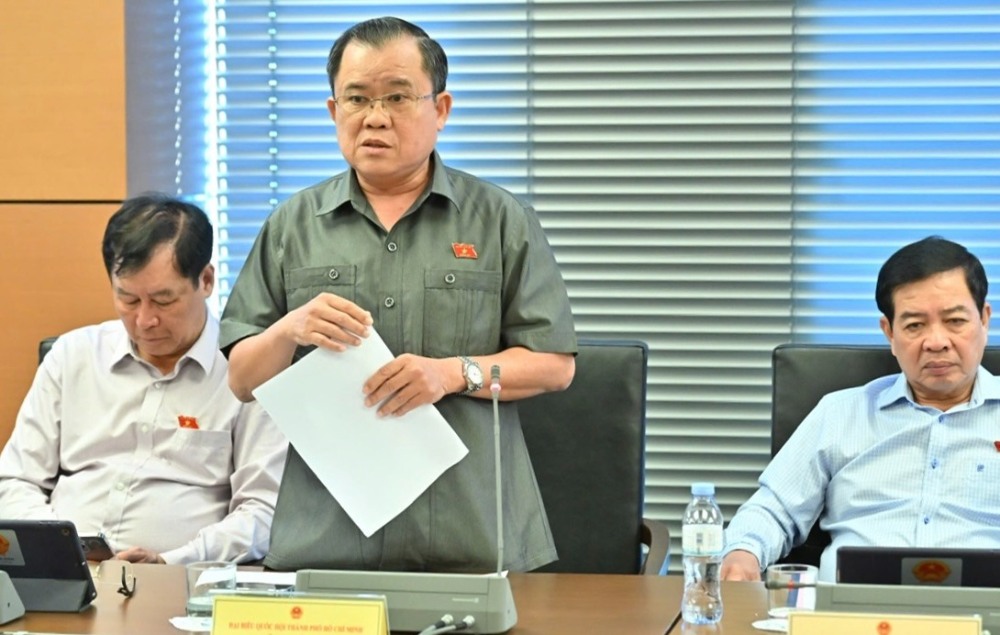
Discussing in the group, National Assembly delegate Nguyen Tam Hung (HCMC delegation) pointed out the reality of natural disasters and floods in recent times causing huge damage, directly affecting people's safety, infrastructure and development capacity of large cities.
In Hanoi, a particularly heavy rain at the end of September 2025 caused dozens of streets to be deeply flooded, with some places having more than 300mm of rain, causing more than 60 flooded spots for many hours, paralyzing traffic, and causing a series of damaged vehicles.
In Ho Chi Minh City, from mid-September to mid-October, heavy rains combined with high tides at Phu An and Nha Be stations caused local flooding in many central areas such as Tran Xuan Soan, Nguyen Huu Canh, Dien Bien Phu streets... Many roads were flooded deeply for a long time, seriously affecting people's lives and socio-economic activities.
According to the delegate, the cost of rescue, drainage, infrastructure repair, vehicles and houses after flooding is very high. This is no longer a story of each locality, but a national issue of national security and urban safety.
The delegate suggested that the Government soon develop and implement a comprehensive project on flood prevention and climate change adaptation in large cities, in which Hanoi and Ho Chi Minh City are two key areas.
The project needs to study and combine a system of dykes, tidal sluices, regulating lakes, smart pumping stations, real-time flood maps, application of green materials and modern meteorological forecasting technology, to proactively respond and improve the resilience of central and suburban cities.



